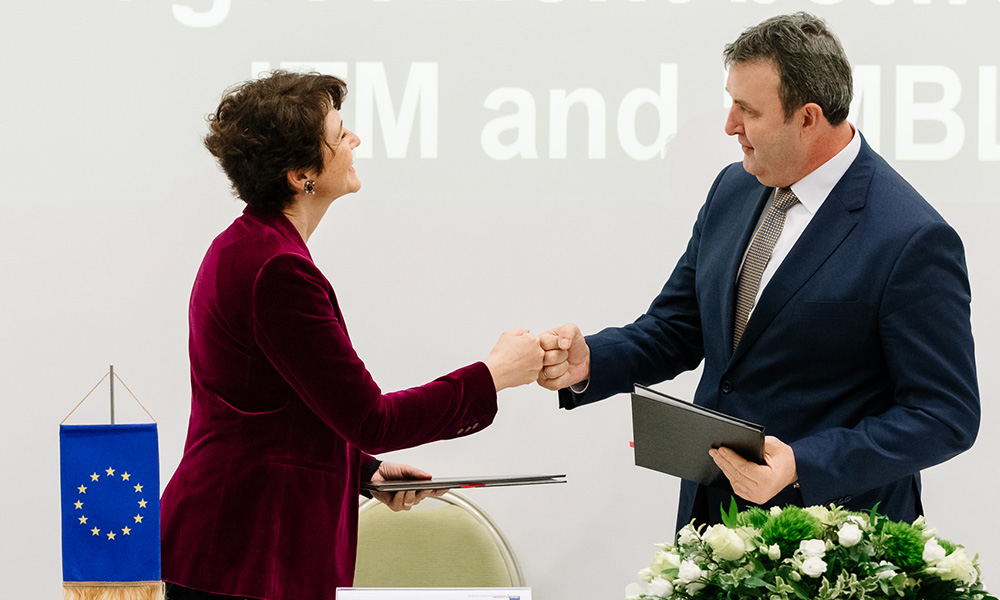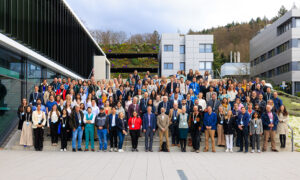
New facility in Hungary builds on strong collaborative foundations
EMBL participates in inauguration of Incubator House facility, located in Szeged, Hungary

On Tuesday 11 January 2022, EMBL Director General Edith Heard was joined by Head of International Relations Plamena Markova and Head of Genomics Core Facility Vladimir Benes, at the inauguration of the Hungarian Centre of Excellence for Molecular Medicine’s new building – Incubator House – located at the Szeged Science Park. The EMBL delegation joined a number of senior figures, including Minister for Innovation and Technology, Prof Dr László Palkovics, Dr Christoph Sensen, Director General of HCEMM, university leaders, and Dr István Szabó, Vice President for Science and International Affairs at the National Research Development and Innovation Office (NRDIO).
The event marked the start of new opportunities for researchers in Hungary, as well as future collaborations with EMBL. These opportunities have been developing since Hungary officially joined EMBL in 2017, and since the EMBL-HCEMM institutional partnership was created the following year. The increased opportunities to share expertise and engage in scientific dialogue come at an exciting time, in particular because of the launch of the new EMBL Programme ‘Molecules to Ecosystems’ which runs from 2022-2026.
Speaking at the event, Professor Heard said: “EMBL and Hungary are both committed to building on the strong foundation that already exists, and to tackling the kind of global threats that require collaborative efforts across borders. We’re delighted to participate in the opening of this valuable facility that will host excellent talent and services, and look forward to seeing the impact that it will have on Hungary’s expertise in the life sciences, as well as contributing to life science research across Europe more broadly.”
HCEMM was founded by the Biological Research Centre of the Hungarian Academy of Sciences, the University of Szeged, and Semmelweis University. It received funding from the European Union’s Horizon 2020 research and innovation programme under grant agreement No 739593. HCEMM is supported by the EU Programme H2020-EU.4.a. The ultimate goal of the HCEMM-EMBL Partnership for Molecular Medicine is the pursuit of scientific excellence through collaborative research, and the provision of a framework for existing and future scientific collaborations.
Strengthening engagement
In addition to the formal opening of the new facility, EMBL signed a memorandum of understanding with the Ministry of Innovation and Technology of Hungary, aimed at intensifying the already strong links between EMBL and life science researchers in Hungarian universities, research institutes, and the innovation sector.
Affirming the collaboration between Hungary and EMBL, Minister for Innovation and Technology Prof Dr László Palkovics said, “EMBL’s network creates a unique opportunity to put into practice the Hungarian expertise in the field of life sciences research throughout Europe. HCEMM – as part of the National Laboratories Programme – summarises the best skills and strengths of Hungarian researchers. The new base in Szeged will help HCEMM to become a regional scientific centre for cutting edge molecular medicine, training, and employing highly qualified researchers.”


